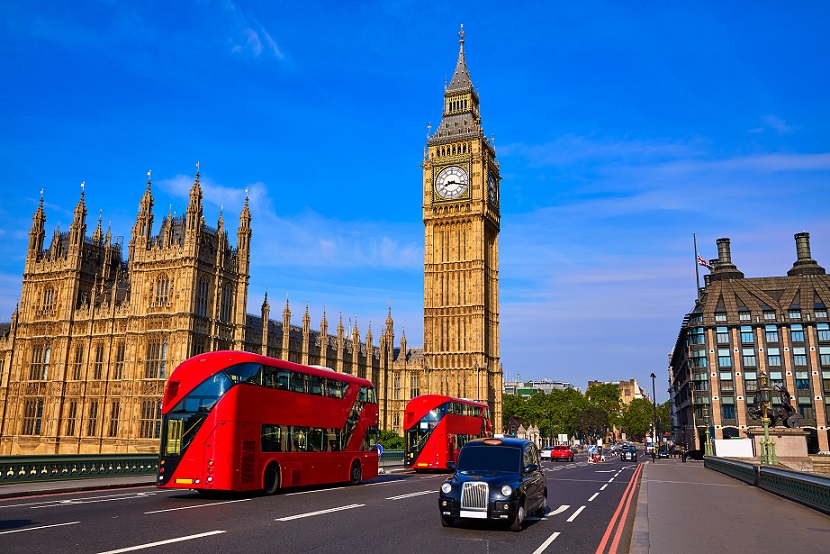Business Visa Requirements for Exploring Business Opportunities in Europe

Business visits to Europe are a common and essential aspect of international commerce. Europe boasts a rich tapestry of countries with diverse economies, cultures, and markets. When planning a business trip to Europe, it's crucial to research the specific countries you intend to visit and their respective business etiquettes. Understanding the cultural nuances and language differences can greatly enhance your chances of success in negotiations and partnerships.
One of the key advantages of conducting business in Europe is the highly developed infrastructure and transportation networks. The continent offers a well-connected web of airports, high-speed trains, and efficient public transportation systems, making it relatively easy to travel between major cities and economic hubs. This connectivity facilitates meetings with clients, partners, and suppliers in different countries, allowing for productive interactions and the exploration of various markets within a short timeframe.
Additionally, Europe's rich history and diverse landscapes offer a unique backdrop for business discussions. Business meetings often take place in historic cities, where participants can enjoy world- class cuisine and cultural experiences. This blend of business and leisure can help foster stronger relationships and create more memorable and impactful business interactions.
Lastly, European business visits may also involve participation in trade fairs, exhibitions, and conferences, which serve as excellent platforms for networking and showcasing products or services. European trade shows are renowned for their scale and quality, drawing industry professionals from across the globe. Attending these events can provide valuable insights, opportunities, and potential partnerships, making business visits to Europe a fruitful endeavour for companies looking to expand their global presence.
Goals of a Business Visa
The primary goals of a business visa typically include:
- Conducting Business Activities: Business visas allow individuals to engage in various business activities, such as meetings, negotiations, conferences, and market research in a foreign country.
- Establishing Business Relationships: They facilitate the establishment of partnerships, collaborations, and networking with foreign businesses and clients.
- Attending Conferences and Seminars: Business visas permit attendance at conferences, seminars, trade fairs, and industry-specific events relevant to one's business interests.
- Exploring Investment Opportunities: Some business visas may enable individuals to explore investment opportunities or initiate new business ventures in the host country.
- Short-Term Work: They may allow for short-term work or consulting for a foreign company, provided it aligns with the visa's terms and the host country's regulations.
- Promoting Products or Services: Business visa holders can promote their company's products or services, market their brand, or explore export/import possibilities.
- Training and Skill Development: In some cases, business visas may be used for training and skill development programs.
The specific goals and permissions associated with a business visa can vary depending on the country and the type of visa issued. It's essential to review the requirements and restrictions of the specific visa category you're applying for in the host country.
Information about a business travel permit
Requirements :
The specific requirements for a business visa in Europe can vary depending on the country you plan to visit, as each European country may have its own rules and regulations. However, I can provide you with some general information and common documents required for a business visa application in Europe:
- Passport: You will need a valid passport with at least six months of validity remaining beyond your intended stay.
- Visa Application Form: You'll need to complete and submit the visa application form for the specific European country you plan to visit. These forms are typically available on the embassy or consulate's website.
- Invitation Letter: If you are invited by a company or organization in Europe, you may need an official invitation letter from them. This letter should specify the purpose of your visit and your intended duration of stay.
- Proof of Business: You may need to provide documents that demonstrate the purpose of your trip, such as business meeting schedules, conference registrations, or letters from your employer explaining the nature of your business in Europe.
- Travel Itinerary: You should provide a detailed itinerary of your travel plans, including flight reservations and hotel bookings.
- Financial Proof: You may be required to show proof of sufficient funds to cover your stay in Europe. This could include bank statements, pay stubs, or a letter of financial support.
- Travel Insurance: Many European countries require travellers to have travel insurance that covers medical emergencies during their stay.
- Passport-Sized Photos: Typically, you'll need a few passport-sized photos that meet the specific requirements of the country you're applying to.
- Visa Fee: There is usually a non-refundable visa application fee that you'll need to pay.
- Other Requirements: Depending on the country, additional documents such as a certificate of incorporation for your business, proof of ties to your home country, and a "no-objection letter" from your employer may be necessary.
Eligibility :
Eligibility for a business visa will depend on the specific requirements of the country you are applying to, your purpose of travel, and your individual circumstances. It's essential to check with the embassy or consulate of the specific European country you plan to visit for the most up-to-date and detailed information on visa requirements and eligibility criteria. Additionally, consider consulting with a visa or immigration expert like EU helpers for guidance tailored to your situation.
Application Process
The application process for a business visa can vary depending on your country of origin and the country you plan to visit. However, here are some general steps you can follow:
- Determine Visa Requirements: Check the specific requirements for the business visa of the country you intend to visit. Visit the official website of the country's embassy or consulate for this information.
- Gather Required Documents: Typically, you will need documents such as a valid passport, visa application form, passport-sized photos, invitation letter from a host company, proof of business purpose (e.g., a business letter or invitation), and financial documents to show your ability to support your trip.
- Complete the Application Form: Fill out the visa application form accurately and completely. Make sure to provide all necessary information and supporting documents.
- Schedule an Appointment: Some countries require applicants to schedule an appointment with the embassy or consulate. Check the specific requirements and procedures for this step.
- Attend an Interview: Depending on the country and the nature of your business trip, you may be required to attend an in-person interview at the embassy or consulate.
- Pay the Visa Fee: Pay the required visa application fee. The fee amount varies by country and type of visa.
- Biometrics and Photographs: You may need to provide biometric data (fingerprint scans) and additional photographs as part of the application process.
- Submit Your Application: Submit your application and supporting documents to the embassy or consulate. Ensure that you have all the necessary paperwork in order.
- Wait for Processing: The processing time for a business visa can vary. It may take a few weeks, so apply well in advance of your planned trip.
- Visa Approval or Rejection: Once your application is processed, you will receive a notification regarding whether your business visa has been approved or rejected.
- Collect Your Visa: If approved, collect your visa from the embassy or consulate. Make sure to check the visa's validity and any specific conditions.
Business Related Short Courses During Business visits
Europe offers a wide range of short business courses for visitors looking to enhance their skills during business trips. Here are a few options to consider:
- London Business School: Located in the UK, they offer various executive education programs, including short courses in leadership, finance, and entrepreneurship.
- INSEAD (France and Singapore): INSEAD offers executive education programs with a global perspective. Their courses cover topics such as strategy, innovation, and digital transformation.
- IESE Business School (Spain): IESE provides short courses in areas like marketing, leadership, and global business. It's a great option if you're visiting Spain.
- HEC Paris (France): HEC Paris offers executive education programs and short courses in topics like finance, marketing, and leadership.
- Rotterdam School of Management, Erasmus University (Netherlands): They offer executive education programs focusing on management, leadership, and innovation.
- Oxford University's Saïd Business School (UK): Oxford offers short courses in areas like strategy, finance, and entrepreneurship.
- ESADE Business School (Spain): ESADE provides executive education programs in Barcelona, covering various business topics.
Remember to check the availability and specific course offerings at these institutions, as they may vary from year to year. Additionally, consider the language of instruction, as many courses may be offered in English, but language requirements can vary.
Seeking professional assistance for your visa application?
If you have questions about obtaining a business visa to Europe, it's highly recommended to consult with EU immigration experts and authorities. They can provide accurate and up-to-date information, ensuring a smooth and successful visa application process for your business endeavours in Europe.


